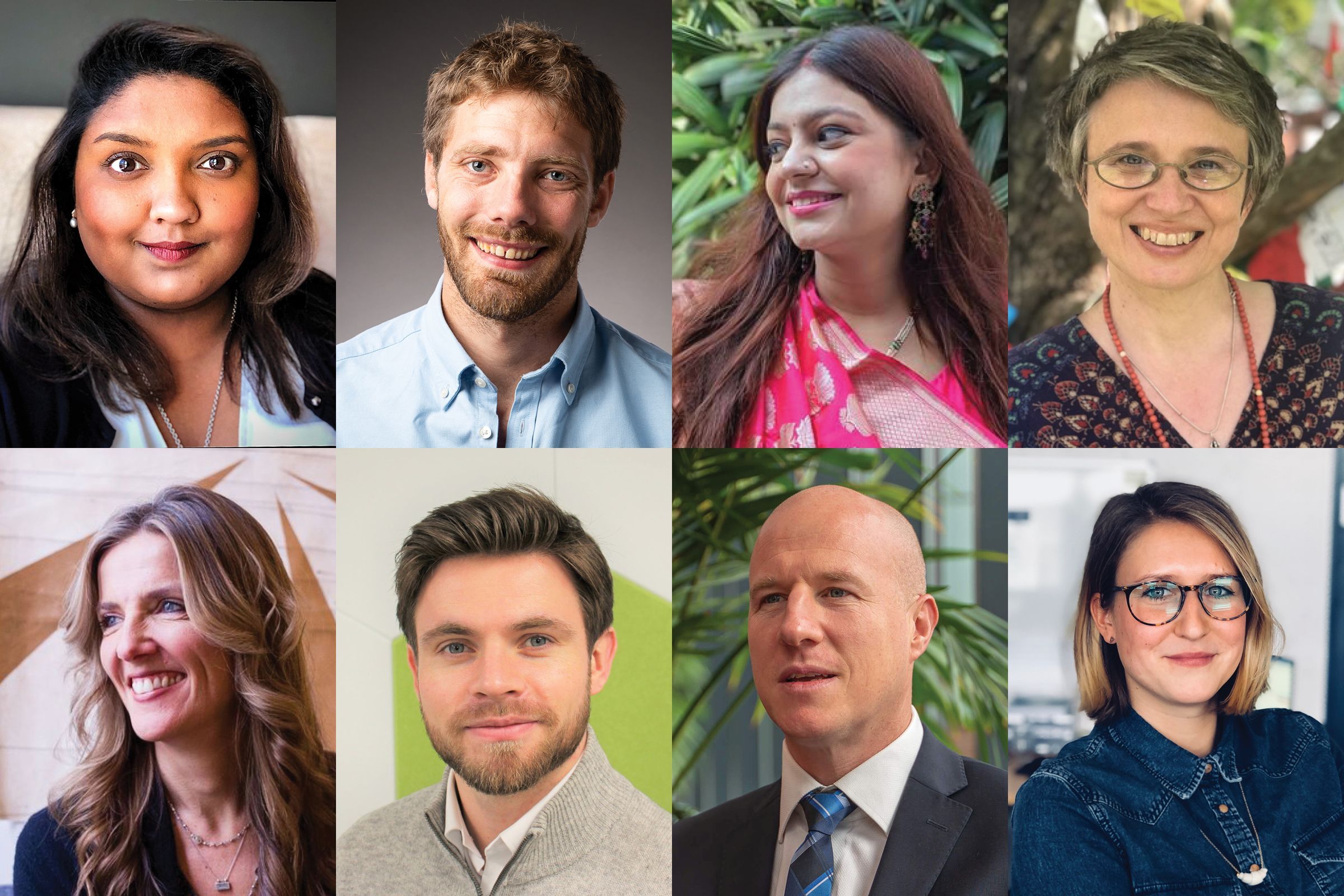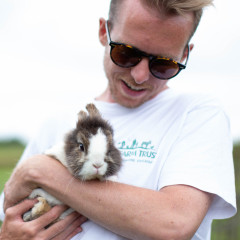Bright scientific minds assembled to help meditation reach the masses
Jun 15, 2020 — Steven Yorke
We've gathered some of the world's bright minds from various backgrounds of science, mindfulness and public health to form our Scientific Advisory Board (SAB).
The SAB will help us produce world-leading meditation and mental health resources that are in line with the latest scientific thinking.
The founders of Medito Foundation and the members of the SAB are unified in our mission to make meditation and mindfulness freely and widely available, for the benefit of public mental health. That’s why the Medito meditation app and all other resources that we produce will be free for everyone, forever.
We'll also work with the SAB to look at opportunities to carry out research on the benefits of mindfulness and meditation.
We're proud to welcome the following people to the SAB:
Dr. Prachi A. Patkee
Prachi is a postdoctoral research associate at the Centre for the Developing Brain, King’s College London, where she also obtained a PhD in Clinical Neuroscience. Her research is focused on understanding foetal and neonatal brain development, using in vivo structural and diffusion magnetic resonance (MR) imaging, and MR spectroscopy. Recently, her work has involved studying early brain development in Trisomy 21 (Down Syndrome) and mapping individual differences in this population.
Prachi is interested in the effects of mindfulness-based interventions on physical health and mental wellbeing.
Dr. Ben Ainsworth
Ben is a Lecturer in Health Psychology at the University of Bath, and deputy director of the Bath Centre for Mindfulness and Compassion. Ben works with people with chronic health diseases (like asthma), to develop ‘non-pharmacological interventions’ to help people have a better quality of life. Lots of Ben’s research uses digital technologies (apps and websites) to help people with respiratory disease, and this has led to another research interest in developing new analytical frameworks to measure and understand how (and why) people 'engage' with treatments, and how treatments can be optimised accordingly.
Dr. Ananya Awasthi
With a Masters in Global Health from the Harvard School of Public Health, Ananya has since worked at the intersection of government, non-governmental organizations and academic institutions to support the development of Public Health programs. Experienced in global health research, management consulting, and policy analysis for public-led initiatives in low and middle-income countries; Ananya is currently working on research and policy initiatives related to health communication and behaviour change, nutrition and agro-food mapping, control of diabetes and hypertension and child rights.
Ananya is interested in translation of scientific evidence that explores the interlinkages between health, mindfulness and wellbeing.
Dr. Jennifer Daubenmier
Jennifer is an Associate Professor in the Holistic Health Studies Program at San Francisco State University. She is a pioneer in mindfulness and metabolic health research. For the past 15 years, she has studied the impact of Eastern mind-body healing practices, including meditation and yoga, on psychological well-being and health outcomes among individuals with obesity, Type 2 diabetes, heart disease and prostate cancer.
She has conducted NIH-funded randomized controlled trials to examine the impact of meditation and mindful eating practices on eating behavior, stress, and metabolic health. More recently, her work is examining race/ethnicity and education differences in mindfulness training.
In 2015, she was awarded a U.S. Fulbright Senior Research Scholar Award to study Tibetan medical and Buddhist perspectives of the mind-body relationship in Dharamsala, India. She currently teaches meditation and traditional Eastern healing perspectives to undergraduate students.
Dr. Laura B. Kasper
Laura is an interpersonal relationship expert and an Adjunct Clinical Assistant Professor at Stanford University’s School of Medicine where she teaches individual and group therapy to psychiatry residents. In her practice as a psychologist, Laura works with high-achievers, leaders, and founders who are interested in building the relational and emotional intelligence skills they need to take their personal and professional relationships to the next level, starting with themselves.
Laura was a management consultant at Accenture for five years before returning to get her Ph.D. in Counseling Psychology and is currently training to become a small-group facilitator for Stanford Business School’s renowned emotional and relational intelligence course Interpersonal Dynamics. Laura brings these experiences of the high-performing professional workplace to her approach with clients.
Laura’s mindfulness and self-compassion work is grounded in her own 15 years of Vipassana meditation practice, studying primarily with Tara Brach and having spent over 100 days in silence on meditation retreats. Laura believes that meditation and mindfulness are essential tools for building the self-soothing and self-regulation skills individuals need to have strong, satisfying relationships with themselves and others.
Dominic O’Neill
After obtaining a Master's degree in Physics with Astrophysics from the University of Kent, Canterbury, Dominic worked for 5 years as a Science Adviser and educator at different educational institutions including international schools and the university Instituto Tecnológico Autónomo de México (ITAM) in Mexico City. Throughout these years, he produced and delivered educational content, both in English and Spanish, for various ages, developing insight into the needs of diverse audiences and how best to communicate scientific ideas in more accessible terms.
When attending a professional development course on mindfulness in the learning environment, Dominic discovered the power of mindfulness as a tool for interrupting negative thought patterns, avoiding disruptive behaviour and fortifying a sense of agency. Subsequently, he has practised mindfulness with his students both as a key component in a healthy learning environment and an essential step in the process of metacognition, which can lead to accelerated and deeper learning.
Dr. William Van Gordon
William is a Chartered Psychologist and Associate Professor of Contemplative Psychology at the University of Derby. In the last 5 years, in addition to three books, he has published over 120 full-text academic papers, including in some of the world’s leading psychology and medical journals. He writes a regular blog on Contemplative Psychology for Psychology Today and sits on the editorial board for various academic journals such as Mindfulness and the Journal of Concurrent Disorders.
Prior to joining academia, William was a Buddhist monk for ten years. He regularly travels all over the world to give keynote speeches, lectures and workshops on meditation and contemplative practice.
Dr. Dorottya Rusz
Dorottya is a researcher with a background in cognitive and health psychology. She got her PhD in the Netherlands where she studied mind wandering and distractions. After, she worked as a postdoctoral researcher at the University of Glasgow and investigated what drives unhealthy habits and how to change them.
At the moment, she works as a user researcher at now-u, an app empowers users to tackle global problems with simple action.
Dorottya is practicing yoga and meditation and interested in the impact of mindfulness meditation on well-being and eating problems.
Dr. Francesca Pesola
Francesca is a Chartered Statistician and Research Fellow in Statistics at King’s College London. She has a background in Psychology with an MSc in Substance Abuse and a PhD in Experimental Psychology. In the last five years, she has been working as a medical statistician in cancer prevention research.
In her current post, she is the lead statistician on several clinical trials, including trials on smoking cessation and relapse prevention. She has extensive experience of developing research protocols, statistical analysis plans as well as conducting analysis and interpretation of trial data. She is also involved in developing and analysing epidemiological studies.
Francesca practices meditation and has an interest in the role of mediation on wellbeing, relieving anxiety and sustaining a healthy lifestyle.
